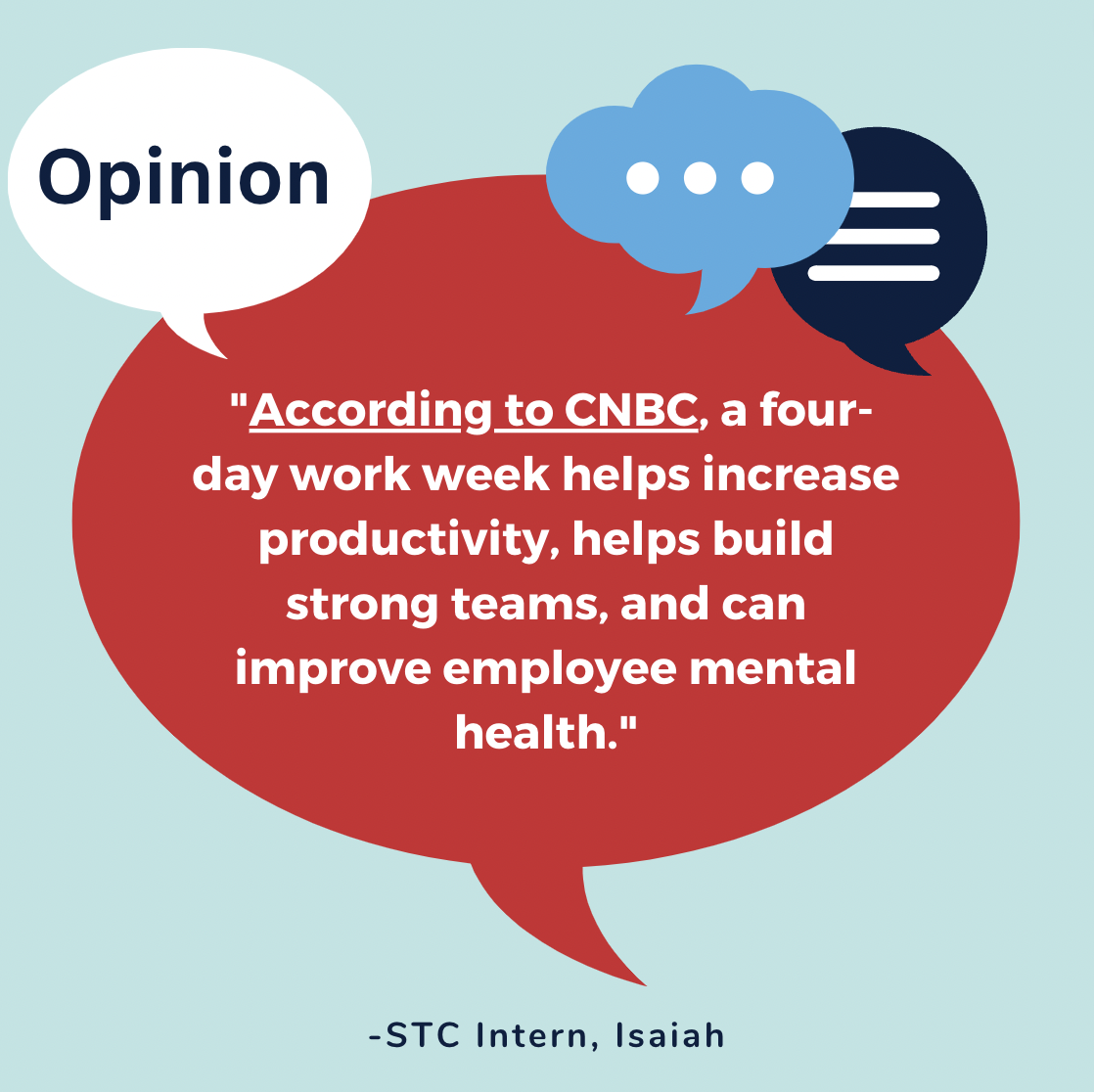
Over the course of their internships, STC interns spent time considering career readiness— what it means for young people today, how it’s packaged, and why it’s important to have youth-centered conversations on work, pathways, school, and more. Here, STC intern Isaiah looks at the history of the 40-hour work week, and argues in favor of a 4-day work week.
In 1926, Henry Ford made Ford Motor Company one of the first companies in America to have a 40-hour work week, introducing a 5-day work week with a pay raise. According to The Washington Post, Ford said the shorter work week made workers more productive, since the 48 hour work week only had a small amount of productivity increase.
Then, according to KQED, back during the Industrial Revolution, workers sometimes worked 12 hours a day, six days a week. By the time 1940 came along, the United States made it law to limit the workweek to 40 hours, and two years before, the Fair Labor Standards Act made it so employers have to pay workers overtime if they worked longer than 44 hours in a week.
With all that history, I think we have evolved past the 40 hour work week. The 40 hour work week is obsolete and should be retired. Shorter work weeks have been shown to help efficiency in the office by eliminating useless meetings. By making the work week 4 days, people are more energized to go to work. According to CNBC, a four-day work week helps increase productivity, helps build strong teams, and can improve employee mental health.
In the UK, a nonprofit by the name of 4 Day Week Global had a trial of the 4-day work week and it was a success: 92% of the companies say they are sticking with the 4 day work week. 90% of the workers said they want to continue with the work week and 55% said they felt more energized to go to work. In America, some states are considering legislation around 4-day work weeks.
I think the 4-day work week is a great idea. I feel many people who disagree are those who just think since they had to suffer through longer work hours, everyone else should. But I think as a society we should evolve–we shouldn’t continue to stick with the past just because older generations suffered through it. We have more information now that could improve work for all generations. Even with kids today, balancing school for eight hours a day, five days a week, the same length as the average work day, puts stress on students and seriously diminishes mental health.
Plus, some students work after school, too: In 2021, about 19.4% of teenagers ages sixteen to nineteen were employees while enrolled in school. I see how positively a 4-day work week would impact adults, and it would be important for students growing into adulthood and their future careers. More companies should plan to adopt it.

